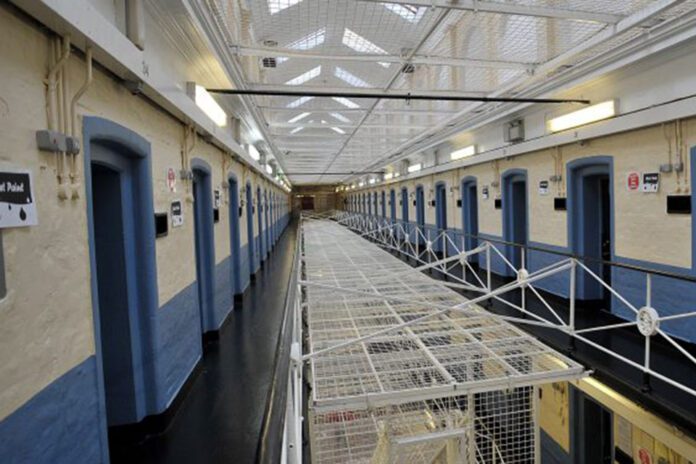
by David Raleigh
A Fine Gael TD and barrister who recently visited Limerick Prison said female prisoners there have backed her call for the introduction of longer jail sentences, particularly for women prisoners, claiming short sentences benefit neither the victim nor the prisoner.
Jennifer Carroll MacNeill, who is co-chair of an all-party Oireachtas group on penal reform, said females who receive minor jail sentences for offences including shoplifting and possession of drugs should either be jailed for at least a year or given supports to tackle mental health and addiction, which, she said, lies behind a lot of female offending.
Deputy Carroll MacNeill said judges may be sentencing women for short sentences because “they may feel it is safer for the woman to be in prison” if they are facing a coercive and controlling partner or family member at home.
“Somebody has to call out that short sentences and using the prison services as a last resort isn’t actually fixing the problem. Either do it properly for a year – give somebody a real chance of having a different outcome – or acknowledge that it isn’t working,” said Deputy MacNeill.
The Dun Laoghaire TD said she hopes new draft penal reform policy will “try to end sentences of less than a year” to give both male and female prisoners a better chance of availing of psychological counselling, rape crisis intervention, and education training.
“What we are really hoping for is to see an end to sentences of less than one year because they just don’t work. Either sentence somebody for a year and let them do the rehabilitation work in prison that is needed, whether its addiction therapy or education, or don’t sentence people in that way.”
Deputy MacNeill who has been touring prisons to meet female prisoners, met with women in custody at Limerick Prison who, she said, overwhelmingly backed her call for longer sentences.
“One of the ladies said to me its like a life sentence of short sentences and there is no way of breaking out of it. A lot of the women are safer in prison than they are at home from an abusive situation and they need time to recover, to access rape crisis centre therapy, to get help with addiction and mental health, and there is just no point in sending them to prison for short periods,“ she added.
A source within the Irish Prison Service said: “I can see where Deputy MacNeill is coming from, it makes sense. Short sentences are very challenging because the person might not necessarily want to engage with services. They could already have a drug addiction and, the chances are, because their sentence is short, they are not going to be engaging in any drug or educational counselling. So the prison system, is it the most suitable place for them in terms of trying to rehabilitate? Probably not.”
“For new committals the whole prison system is new, so the person might be worried for their own safety, they might have difficult circumstances on the outside, they might not have admitted their own addiction, they might not want to change their addiction. So prison staff need to try and make this person get used to their environment and show them what’s available to them and build a working relationship up, and that all takes time.
“So by the time somebody is coming to the end of a short sentence they might not be able to avail of the service, or they might only be coming around to avail of the service and then they are released.
“And then they go back into the community and there are no services available to them and so they end up going back to prison for re-offending and it’s a big vicious circle,” the source within the Irish Prison Service concluded.


